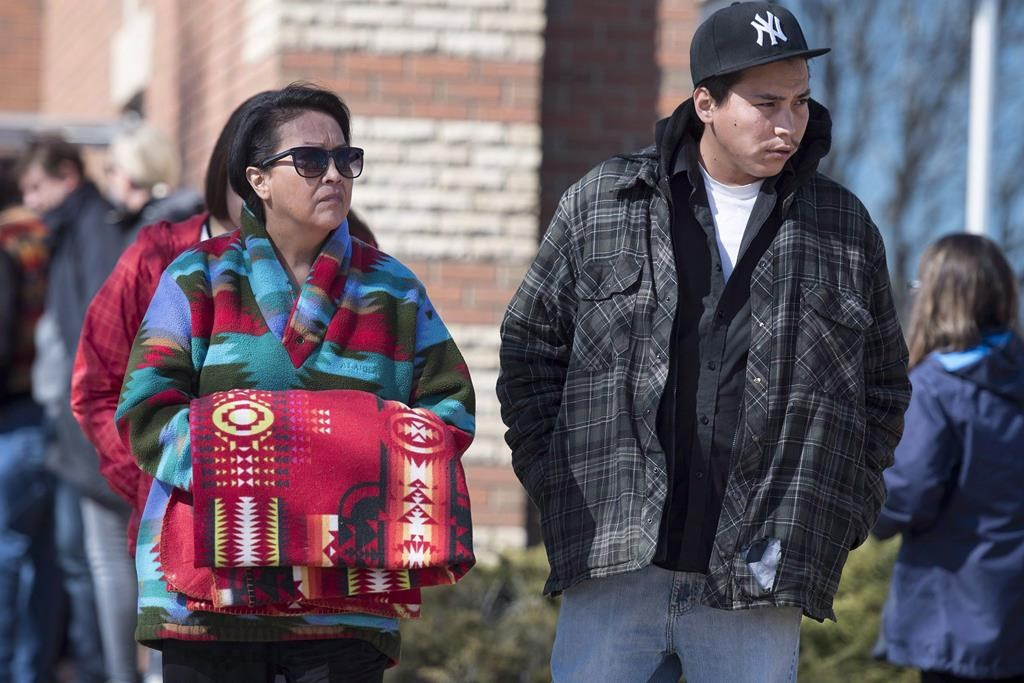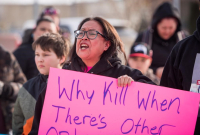Support strong Canadian climate journalism for 2025
Colten Boushie's family was in Ottawa on Monday to meet federal ministers after a Saskatchewan farmer accused of fatally shooting him was acquitted late last week.
Boushie's cousin, Jade Tootoosis, said the family has no specific goal beyond building relationships with people who have the power to change the way First Nations people are treated in the criminal justice system.
"We're not in a rush because we want things done right," Tootoosis said shortly after meeting with Indigenous Affairs Minister Carolyn Bennett.
"We have little to no faith in the justice system. We're here to talk about that."
On Friday, a jury found Gerald Stanley, 56, not guilty of second-degree murder in the 2016 killing of Boushie, a 22-year-old member of the Red Pheasant First Nation.
Boushie's relatives are expected to sit down with Public Safety Minister Ralph Goodale and Justice Minister Jody Wilson-Raybould on Tuesday.
Boushie's mother, Debbie Baptiste, said justice for Colten would mean a change to the justice system.
Chris Murphy, a family friend and lawyer, said the family discussed the issue of jury selection with Bennett.
The apparent all-white makeup of the jury has been widely criticized, along with so-called peremptory challenges, which allow lawyers to reject jury candidates without needing to provide a justification.
Tootoosis said she would like to see the government do away with peremptory challenges.
Wilson-Raybould, who is the country's first Indigenous justice minister, tweeted Saturday in the wake of the Stanley verdict that Canada "can and must do better."
Aboriginal Sen. Murray Sinclair posted a poem online saying he grieves for First Nations youth "who now see no hope," and says Indigenous Canadians have been grieving for so long it has become part of their DNA.
"I grieve for a family that has not yet seen justice from the moment a handgunned farmer (why does a farmer need such a gun?) pulled the trigger and killed their son," Sinclair wrote.
Kevin Seesequasis, a Cree Nation councillor in Saskatchewan, said both Indigenous and non-Indigenous residents are reeling from what he describes as a horrible failure of the criminal justice system.
"Colten Boushie was not just the victim of a senseless murder," Seesequasis said.
"If we cannot find some way toward real change for Indigenous people in the criminal justice system, Colten Boushie will also be the victim of a criminal justice system that was stacked against him from the start and a government indifferent to that reality."
Indigenous faculty members and allies sent an open letter to heads of universities across Canada describing the Stanley verdict as "yet another iteration of the systemic violence that Indigenous peoples in this country have faced for over 150 years."
The letter, signed by more than 20 faculty members from schools as far afield as Australia and New Zealand, calls for universities to support anti-oppressive education and enhance institutional accountability towards First Nations communities.




Comments